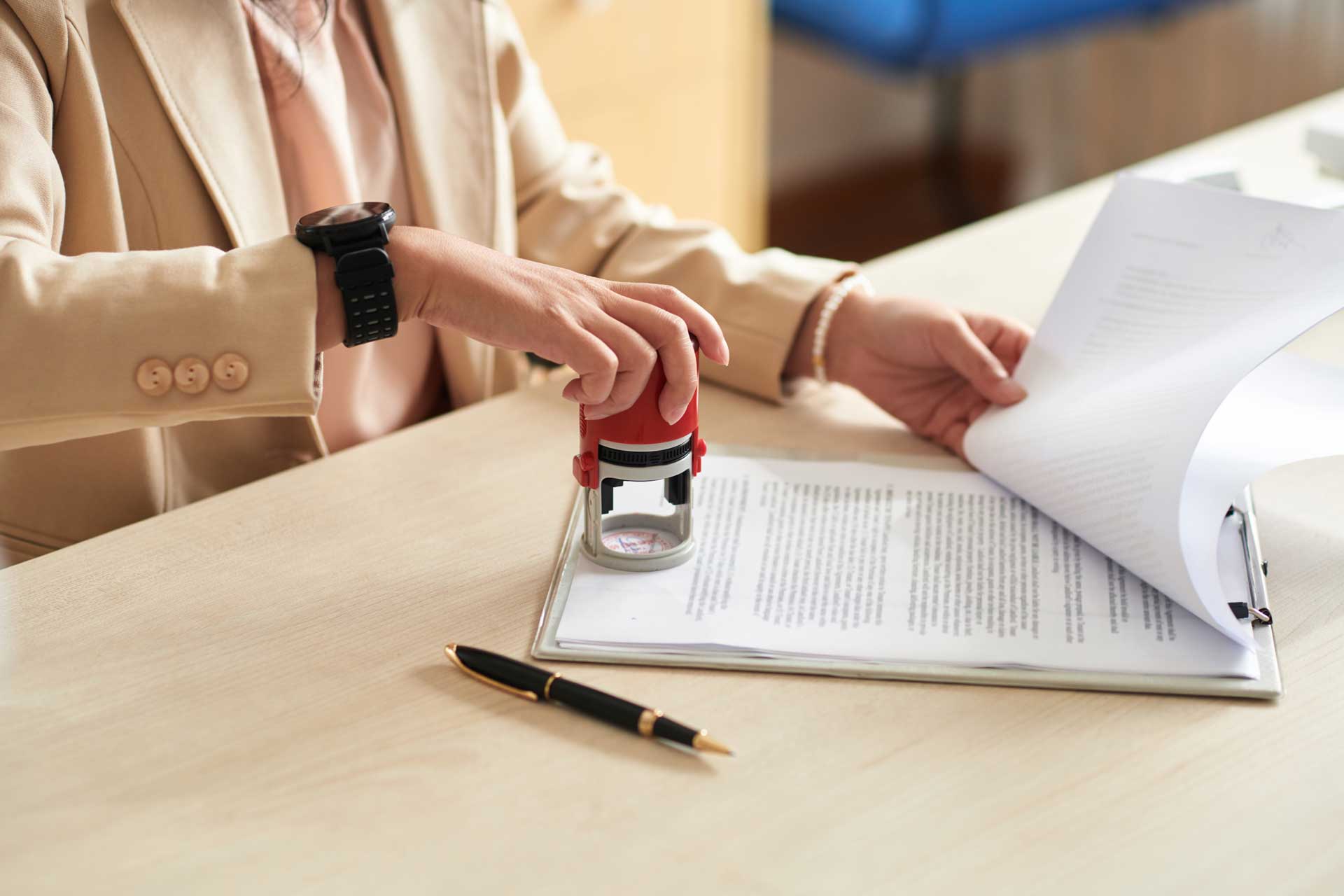
Notaries are essential in verifying identities and preventing fraud, but they are not attorneys. One of the most common mistakes notaries make is unintentionally crossing the line into the unauthorized practice of law (UPL) when answering client questions.
Understanding what you can and cannot say as a notary is crucial to avoiding legal violations and protecting your commission. This guide will clarify UPL, what notaries must avoid, and how to properly handle client questions.
UPL occurs when a person not licensed as an attorney provides legal advice or services to someone else. Since notaries are not legal professionals, they are prohibited from interpreting or advising clients about legal documents.
If a notary crosses this boundary, they risk fines, loss of commission, and even criminal charges in some states.
Notaries cannot explain, summarize, or provide opinions on any legal document. If a client asks what a document means, the only correct response is to direct them to an attorney or the document’s issuing agency.
| Client Question | How a Notary Should Respond |
|---|---|
| “What does this document mean?” | “I cannot explain the document. You may want to consult an attorney.” |
| “What happens if I sign this?” | “I cannot provide legal advice. Please seek guidance from a legal professional.” |
| “Do I need a power of attorney or a will?” | “I am not authorized to determine which documents you need. An attorney can help you with that decision.” |
Even if a document seems straightforward, a notary must not interpret or provide guidance.
No, a notary cannot decide whether a client needs an acknowledgment, jurat, or another type of notarization. Instead, the signer must specifically request the type of notarial act they need.
If a client insists that the notary decides on their behalf, the notary must refuse the notarization.
No, a notary cannot complete forms, draft documents, or insert missing information. Even if clients struggle with paperwork, they must complete all required fields before the notarization.
If a client hands you a partially completed or blank document, do not proceed until it is correctly filled out.
In most states, notaries cannot provide pre-printed legal documents. This includes wills, contracts, affidavits, and power of attorney forms unless the notary is also a licensed attorney.
Some states, like Florida and Texas, allow notaries who are non-attorney document preparers to offer certain forms, but they still cannot provide legal advice.
If a client asks for a legal template, the best response is:
Notaries who engage in UPL can face severe legal and financial penalties.
| Consequence | Possible Penalty |
|---|---|
| Fine for UPL violation | Up to $5,000 per offense |
| Suspension or revocation of commission | Loss of notary status |
| Criminal charges in some states | Misdemeanor or felony charges |
| Civil lawsuits from affected clients | Financial liability and reputational damage |
Even accidental UPL can result in complaints and legal action, so notaries should always be cautious.
Notaries can still provide valuable services while staying within legal boundaries.
| Service | Allowed? |
|---|---|
| Administering oaths and affirmations | Yes |
| Completing the notarial certificate | Yes |
| Choosing the notarial act for the signer | No |
| Filling out legal forms for a client | No |
| Explaining the meaning of a document | No |
| Offering general descriptions of notarial acts | Yes |
Notaries can protect themselves and their clients by following state laws and ethical guidelines.
If a client pressures a notary for legal guidance, a polite but firm refusal is the best response.
If a client continues pushing for advice, the notary should refuse the notarization to avoid legal liability.
Notaries are not attorneys, and providing legal advice—even accidentally—can have serious legal consequences. Notaries can protect their commissions and reputations by avoiding UPL, refusing to interpret documents, and directing clients to legal professionals.
Notaries can serve their clients ethically and professionally by staying within their legal role.
For more guidance on notary best practices, visit the Notary Public Association.
Disclaimer: All information provided by Notary Public Association is for educational purposes only and is not intended as legal advice. Notary Public Association makes no representations or warranties as to the accuracy, completeness, or applicability of the information provided and assumes no liability for any actions taken in reliance on it. Always consult a licensed attorney or your local commissioning authority for guidance specific to your notary responsibilities and jurisdiction.
Stay informed with our latest updates, tips, and exclusive offers – subscribe now!